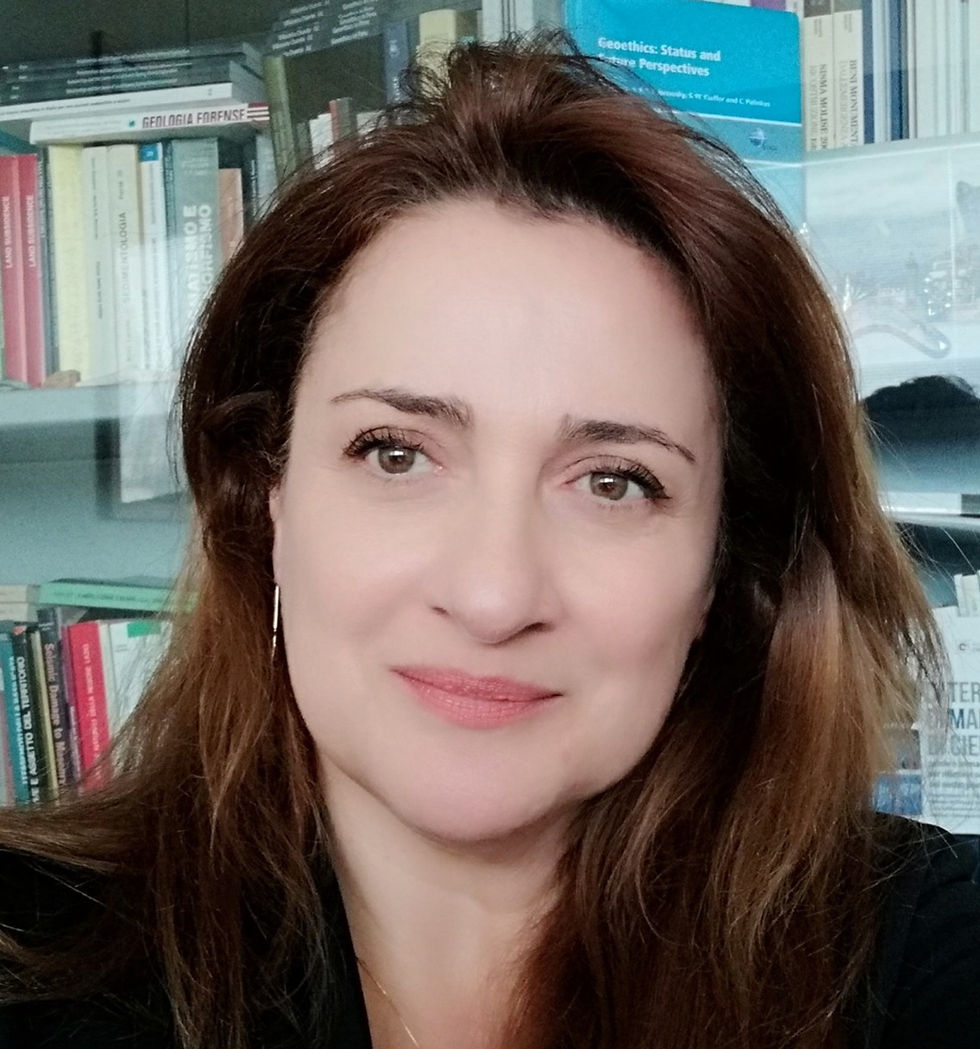

For about fifteen years I have been dedicated to the development and promotion of geoethics around the world. When I speak of geoethics, I refer to an ethics of responsibility of the human being towards the Earth system; a geosophy, a "knowledge" of the functioning of the Earth, which in the human being translates into Aristotelian phronesis, a wisdom capable of directing choices, a wisdom of living the Earth, which presupposes the awareness of the human position and condition in the great natural architecture.
Geoethics stresses the need to establish common principles and reference values among individuals, since their social dimension, interaction and community organization cannot be disregarded. Responsibility is the bridge linking the cultivation of the virtues of the individual (geoethics is ethics of virtue) and his/her action in the vast area of relationships in which he/she is immersed (geoethics is also an ethics of responsibility, namely of the conscious taking charge of the consequences of acting in a system of complex relationships, which will inevitably be modified by one's choices).
Defining ourselves defensores terrae (defenders of the Earth), guardians of the planet and nature, can hide a form of rigid anthropocentrism masked by ecocentrism, sometimes intransigent, and betray the permanence of that cultural idea of separation between us humans and what is other from us, which has carved a perceptive groove between human and non-human being, between us and nature, living and non-living.
Rather, I believe that, as humans, we share the natural being in a relationship of continuous exchange between us and the other, without interruption, capable of defining ourselves also as a natural species.
We cannot deny that we are certainly anthropocentric (at least on the cognitive level), but we are also biocentric (in our feeling closer to animated life rather than inanimate things) and ecocentric (able to grasp the value of the whole rather than its individual constituent parts), as well as geocentric, or rather "geacentric" (moreover, in this universe we have no other home than Gea, Gaia, the Earth, at least for the moment).
We are multifaceted, we are all together, but we are not aware of it. And if we were aware, we would simply be human, integral, authentic, earthly.
Gea, our mother Earth, is a concept transversal to many human cultures. A complex system, an inextricable network of relationships, in which the part develops in the whole and the whole is constantly changing in the evolution of its parts.
Speaking of ethics, of geoethics, in particular today, means for me to contribute to writing a new way of perceiving and thinking about the world. Because the world as it is no longer works. Too many fractures and torn relationships, too many abuses and inequalities, too much death and suffering. Everywhere, not only in our "reprehensible" Western world, believed to be the cause of everything, for better or worse, but especially for worse.
We talk about ecological, social, energy, economic, moral, geopolitical crisis.... Too many terms to avoid confronting with what is clearly a crisis of the human being, of his/her ethical, cultural, educational, social and economic references.
The ecological crisis is both a crisis of the natural ecosystem and of the human being, who is an integral part of it. The crisis of the human ecosystem, now extended to the entire planet, and of the "subject" who constitutes it, despite the diversity of their modes of expression, shakes, tears, mortally wounds even the natural ecosystem. Inevitably.
The Anthropocene becomes "anthropocrisis", disorientation, impotence, resignation after the excitement of centuries of affirmation, pride, dominance; it becomes a path on the thin, imperceptible thread of uncertainty, of possibility.
We can still choose between a disaster and a new world, we can still decide to continue fueling the ongoing destructive process, or use our extraordinary creativity to stop it. Our future lies in grasping and learning to manage this ambivalence, in the awareness of the unpredictability of human history.
We will have to renew our lexicon and rediscover the deep meaning of words, invent a new society, global, inclusive, which also includes non-human entities, build a new ethics that rewrites our being part of nature, an ethics towards the Earth: a geoethics.
We will have to do without the visionary wisdom of masters such as James Lovelock (1919-2022) and Bruno Latour (1947-2022), both passed away this year. Without them, we will have to thoroughly question the present world and build a possible idea of the future to be delivered to young people.
Note: This article is taken, with modifications, from the text published in Italian in the ReWriters Magazine by the same author: https://rewriters.it/la-saggezza-visionaria-di-lovelock-e-latour-per-affrontare-era-delle-crisi/
Other articles in the IAPG Blog:
IAPG - International Association for Promoting Geoethics:

I believe we owe ourselves the duty of constantly educating and evolving our minds to expect new "anthropocrisis" actions from humans; thus, preparing ahead of defending and preserving mother Earth!